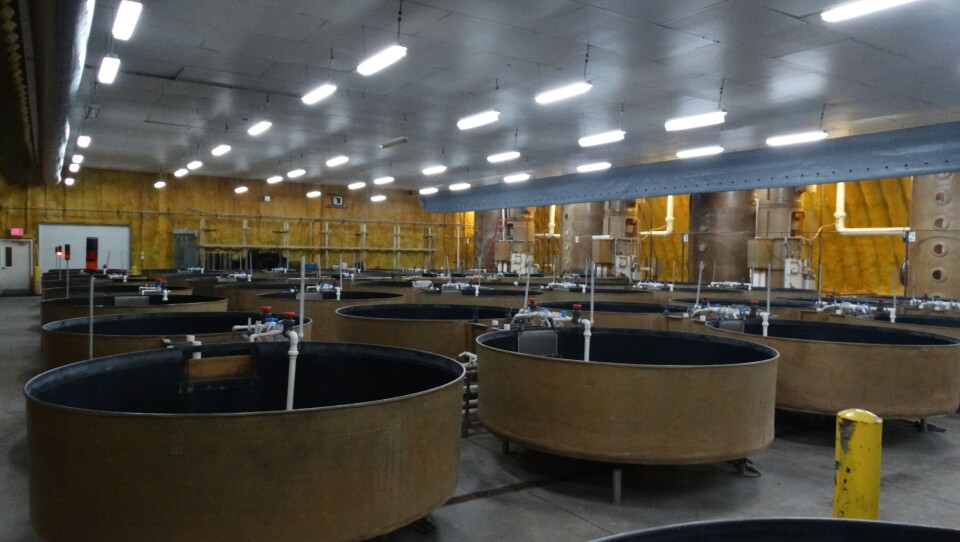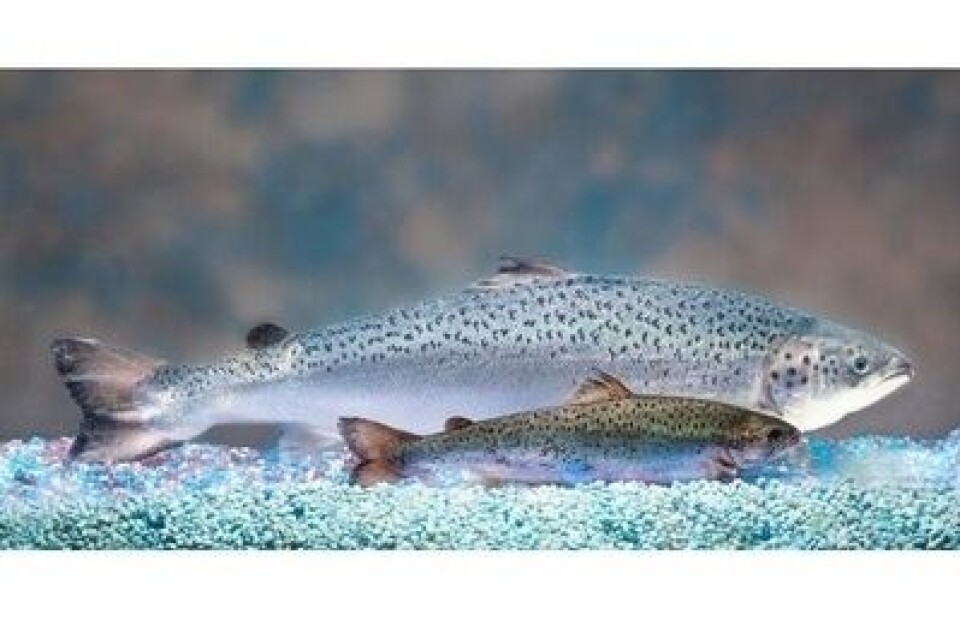
AquaBounty prices shares at $1.50 in fundraising bid
Transgenic-salmon grower AquaBounty has priced its shares at $1.50 in its latest public stock offering, which is designed to raise $13.5 million.
When the Massachusetts-based company announced the offer in January it said the shares would have an assumed price of $2.66, based on the closing sale price of its common stock on the Nasdaq Capital Market on January 14.
But the price of its shares in the market has since fallen to around $1.70, and that appears to be reflected in the offer price.

Nine million shares
AquaBounty if offering nine million shares for sale and has granted the offer’s underwriter a 45-day option to purchase up to an additional 1,350,000 shares to cover over-allotments.
The company originally planned to raise $10m from the share sale, but that figure has since risen to $13.5m before costs.
As it has previously stated, AquaBounty intends to use the net proceeds to continue construction and renovation of its brood stock facility and 250-tonne farm in Rollo Bay in Prince Edward Island, Canada and its 1,200-tonne farm near Albany, Indiana.
The money will also be used for working capital costs associated with growing its first batches of fish at the recirculating aquaculture system (RAS) farm sites, and for other general corporate purposes.
Harvesting in Q2
“Based on our progress to date, we expect that the Indiana farm will begin harvesting its fish in the second quarter of 2020, and the Rollo Bay farm will begin harvesting in the fourth quarter of 2020,” AquaBounty said in January.
“Our target is to achieve an annual production output of at least 50,000 tonnes by 2027.”
AquaBounty raised $7.5m in a share sale in March last year following the US Food and Drug Administration’s decision to allow the company to grow and sell its genetically-engineered AquAdvantage salmon in the United States, and followed that in April with a second offer which raised another $5.75m. Shares were offered at $2.25 on each occasion.
AquAdvantage salmon are the descendants of Atlantic salmon that had a gene from another fish added to allow them to grow much faster than conventional fish for some of their life. The modification means the fish reach harvest size more quickly and use less feed to get to that size.























































